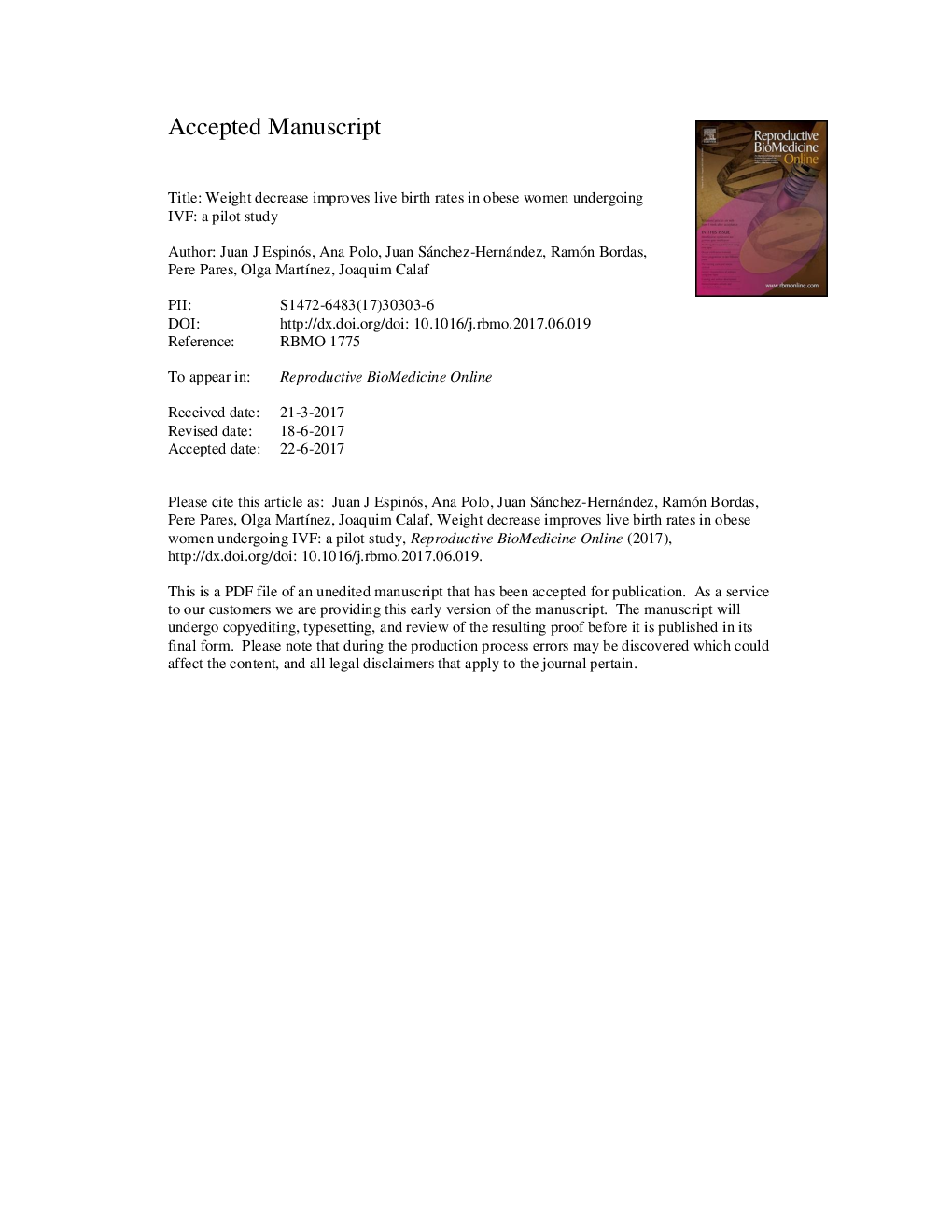| Article ID | Journal | Published Year | Pages | File Type |
|---|---|---|---|---|
| 5696580 | Reproductive BioMedicine Online | 2017 | 13 Pages |
Abstract
Obese women have lower pregnancy rates than normal-weight women undergoing assisted reproductive treatment. We conducted a pilot study to evaluate whether a 12-week diet and exercise intervention before an IVF cycle would influence pregnancy rates in obese women. Forty-one patients were enrolled in this study. They were randomly allocated to two groups: an intervention group (n = 21), who underwent an individualized diet and physical exercise programme supervised by a dietician, and a control group (n = 20), who started IVF with no previous intervention. The primary outcome was clinical pregnancy rate after a single treatment cycle. Mean weight loss in the study group after the intervention was 5.4âkg (range 1.1-14.6âkg). The study and control groups had similar total FSH consumption, number of oocytes and embryos obtained, and number and quality of embryos transferred. There was a non-significant trend towards a higher clinical pregnancy rate after fresh embryo transfer (66.7% versus 41.2%). The intervention group had a significantly higher cumulative live birth rate (61.9% versus 30%, P = 0.045) (odds ratio for intervention group, 3.8; 95% confidence interval, 1.03 to 13.9) The data suggest that weight loss resulted in a significantly increased cumulative live birth rate.
Keywords
Related Topics
Health Sciences
Medicine and Dentistry
Obstetrics, Gynecology and Women's Health
Authors
Juan J. Espinós, Ana Polo, Juan Sánchez-Hernández, Ramón Bordas, Pere Pares, Olga MartÃnez, Joaquim Calaf,
